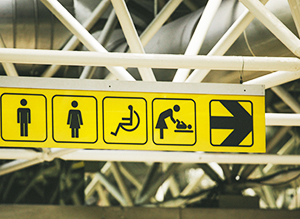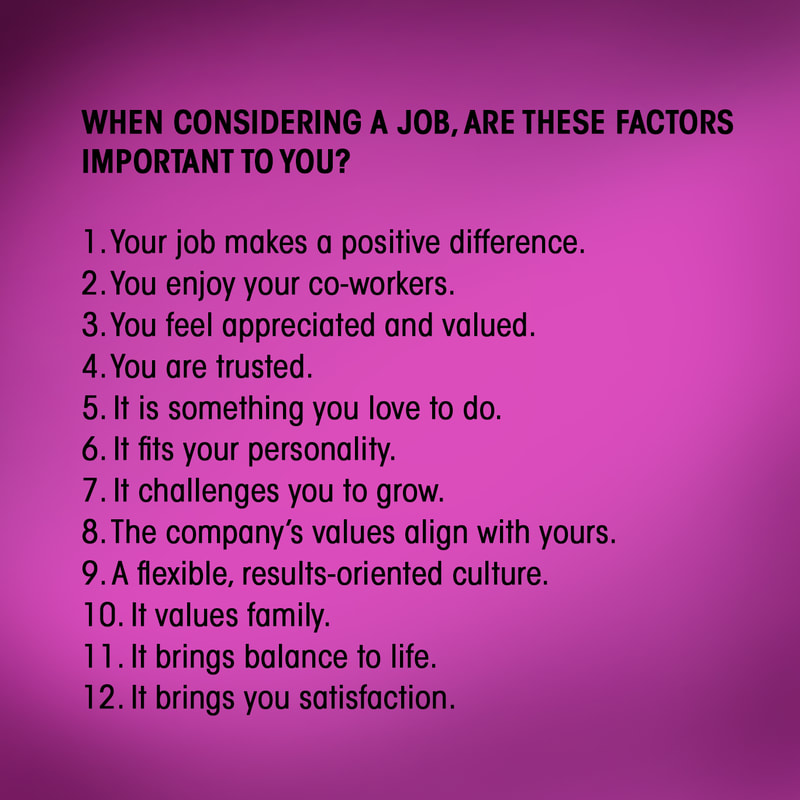1 Comment
 Interviewing Best Practices Interviewing Best Practices Questions Not to Ask During an Employment Interview There are many federal laws (and also state laws) in place to protect job seekers from workplace discrimination. Best practices and staying up to date with employment laws also help employers avoid discrimination lawsuits. Simply put, it’s best to avoid asking job candidates about age, race, ethnic origin, gender identity, sexual orientation, marital status, children, family planning, disability, and genetic information. Even if it isn’t the intention, the answers to these questions could bias the interviewer against the job seeker. Stay away from questions that could be perceived as discriminatory and consult the Equal Employment Opportunity Commission (EEOC) for more information. As a business owner, it’s important to know that you should not ask certain questions during a job interview. Equally, as a job seeker, it’s critical to know how to best answer questions that aren’t relevant to the position. Interview Questions to Avoid:
These sample questions could be seen as illegal and infringe on a person’s state and federal rights. It’s best to consult with the human resources department, an employment attorney, or local EEOC office for more information. Employers should use a set of standard questions for every candidate. Otherwise, companies run the risk of individuals feeling singled out and discriminated against during the hiring process. This could lead to a filing of an EEOC charge of discrimination and/or a lawsuit. Questions can vary based on the candidate’s job skills, experience, and work background. Research, plan, and prepare the interview process to ensure compliance with state and federal laws and fair treatment to all who apply for the job. Employees who have filed complaints and/or have asserted their rights protected by the Equal Employment Opportunity (EEO) cannot be discriminated against, harassed, or discharged on account of such activity. If adverse action is taken against an employee for engaging in protected activity, the affected employee may file suit for relief, including reinstatement to his/her job, payment of lost wages, and damages.
Learn more about the EEOC's enforcement guidance on workplace retaliation and the protected categories, including race, sex, national origin, religion, disability, age, and others. Or consult with an employment and labor lawyer in your area to better understand your civil rights.  Are Employers Required to Give Lunch Breaks? Do you know there is no federal law requiring businesses to give lunch breaks to employees? Each state decides whether or not lunch breaks are mandatory. Currently, there are 19 states which require lunch breaks: California, Colorado, Connecticut, Delaware, Illinois, Kentucky, Maine, Massachusetts, Minnesota, Nevada, Nebraska, New Hampshire, New York, North Dakota, Oregon, Rhode Island, Tennessee, Washington D.C., and West Virginia. Florida, unfortunately, is not on the list. However, many employers choose to give employees breaks. Consult with management or HR to know if you are allowed to take lunch or other breaks and if such breaks are paid or unpaid.  Who Does the ADA Protect? The Age Discrimination in Employment Act of 1967 (ADEA) protects applicants and employees who are 40 years of age or older from employment discrimination based on age. Who Does the ADEA Cover? The ADEA applies to private employers with 20 or more employees, state and local governments, employment agencies, labor organizations and the federal government. What Actions are Prohibited By the ADEA? Under the ADEA, it is unlawful to discriminate against a person because of his or her age with respect to any term, condition, or privilege of employment, including hiring, firing, promotion, layoff, compensation, benefits, job assignments, and training. Harassing an older worker because of age is also prohibited. It is also unlawful to retaliate against an individual for opposing employment practices that discriminate based on age or for filing an age discrimination charge, testifying, or participating in any way in an investigation, proceeding, or litigation under the ADEA. The ADEA permits employers to favor older workers based on age even when doing so adversely affects a younger worker who is 40 or older. Employees who feel discriminated against due to age should consult the company's policies and procedures manual, which usually involves notifying human resources and/or management. Additionally, visit the EEOC to learn more about age discrimination and harassment in the workplace, or consult with an attorney specializing in employment and labor law.  Title VII of the Civil Rights Act of 1964 prohibits employers from discriminating against individuals because of their religion (or lack of religious belief) in hiring, firing, or any other terms and conditions of employment. The law also prohibits job segregation based on religion, such as assigning an employee to a non-customer contact position because of actual or feared customer preference. In addition, the Title VII requires employers to reasonably accommodate the religious beliefs and practices of applicants and employees, unless doing so would cause more than a minimal burden on the operation of the employer's business. A reasonable religious accommodation is any adjustment to the work environment that will allow the employee to practice his religion. Flexible scheduling, voluntary shift substitutions or swaps, job reassignments lateral transfers, and exceptions to dress or grooming rules are examples of accommodating an employee's religious beliefs. What is workplace bullying and harassment?
According to the organization Workplace Bullying Institute (WBI), if the answer is yes to any of these questions, you are a victim of bullying which they define as a "repeated, health-harming mistreatment of one or more persons (the targets) by one or more perpetrators". While at this time there is no federal or state law that prohibits this type of treatment, bullying is illegal when it violates federal or state laws prohibiting discrimination and harassment on the job. As an employee, you cannot be harassed or discriminated against due to your sex, race, color, religion, national origin, disability, or age. If you are a victim of workplace discrimination due to one of these protected characteristics, it's important to contact a lawyer for legal counsel. Call Harris Law Firm to schedule a consultation with a Miami employment attorney.  What are my legal rights during a job application? There are multiple state and federal anti-discrimination laws that protect you during the job hiring process. Do you know it’s illegal for any employer to do the following?
As a business owner, hiring manager, or prospective employee, it’s important to know these types of questions asked during an interview or on an application are not permitted:
No Drug Tests Against Applicant’s Will Did you know it’s illegal for employers to force job applicants to take a drug test? This means an employer cannot force an applicant to take a drug test against the applicant’s will. However, an employer offering a job that is contingent on passing a drug test is indeed lawful, and the applicant can choose to submit to the test or not. For more information visit www.eeoc.gov/laws/practices.  I was recently discussing with a colleague (a father of 4) that there is a new law which requires changing stations in both men’s and women’s bathrooms in certain buildings. He laughed because he couldn’t believe there was an enforceable law in place. Then he started to reminisce about changing his children’s diapers on his lap, the trunk of the car, and the hood—yes, the hood! (And, no, the car wasn’t running or hot.) As a parent, this is a challenge of which I’m familiar. While dining, traveling, and shopping, I’ve been lucky enough to score a bathroom with changing facilities, but I’ve also met my fair share of those lacking this much appreciated modern-day convenience. For dads, they have it worse due to the absence of changing tables in men’s restrooms. I’ve seen my husband frustrated by the lack of compassion for diaper bag-toting parents. I’m pleased to report on October 7th, President Obama signed a bill into law requiring changing stations to be available in the men’s and women’s restrooms of public federal buildings. The Congress.gov website states changing facilities should be “…physically safe, sanitary, and appropriate” for use. The new law titled ‘The Bathrooms Accessible in Every Situation (BABIES Act)’ is not fancy sounding, but who cares!? I was surprised when I learned a bipartisan majority in the House of Representatives agreed to the bill before being unanimously passed in the Senate. Many are praising this law, although there are those who feel the law doesn’t do enough and that it’s just a small step toward equality. I say it’s a positive start! Let’s celebrate the small victories. (Parents, I know you are silently applauding while reading this.) Let’s face it, fathers have been dealing with the woes of changing diapers when out in public while harnessing their inner MacGyver, but oftentimes that means changing your little one on dirty floors, unsanitary countertops and car trunks. And for the women who have endured similar moments using their lap and passenger seat to get the job done, I would bet they are also in favor of all businesses installing changing stations in the restroom. At least designate one as family friendly, equipped with a changing table, turning a “unisex” restroom into an all-ages appropriate facility. We often talk in the context of men versus women, but what about rethinking bathrooms in terms of family-friendly or child-friendly? Let’s think about who really has the disadvantage here—why are we discriminating against youngsters when it comes to providing basic needs in a public setting? The full language of the Bathrooms Accessible in Every Situation or Babies Act can be viewed here https://www.congress.gov/bill/114th-congress/house-bill/5147 —Marra Chinn Allen, Marketing Coordinator & Office Manager |
Archives
November 2018
Categories
All
|



 RSS Feed
RSS Feed